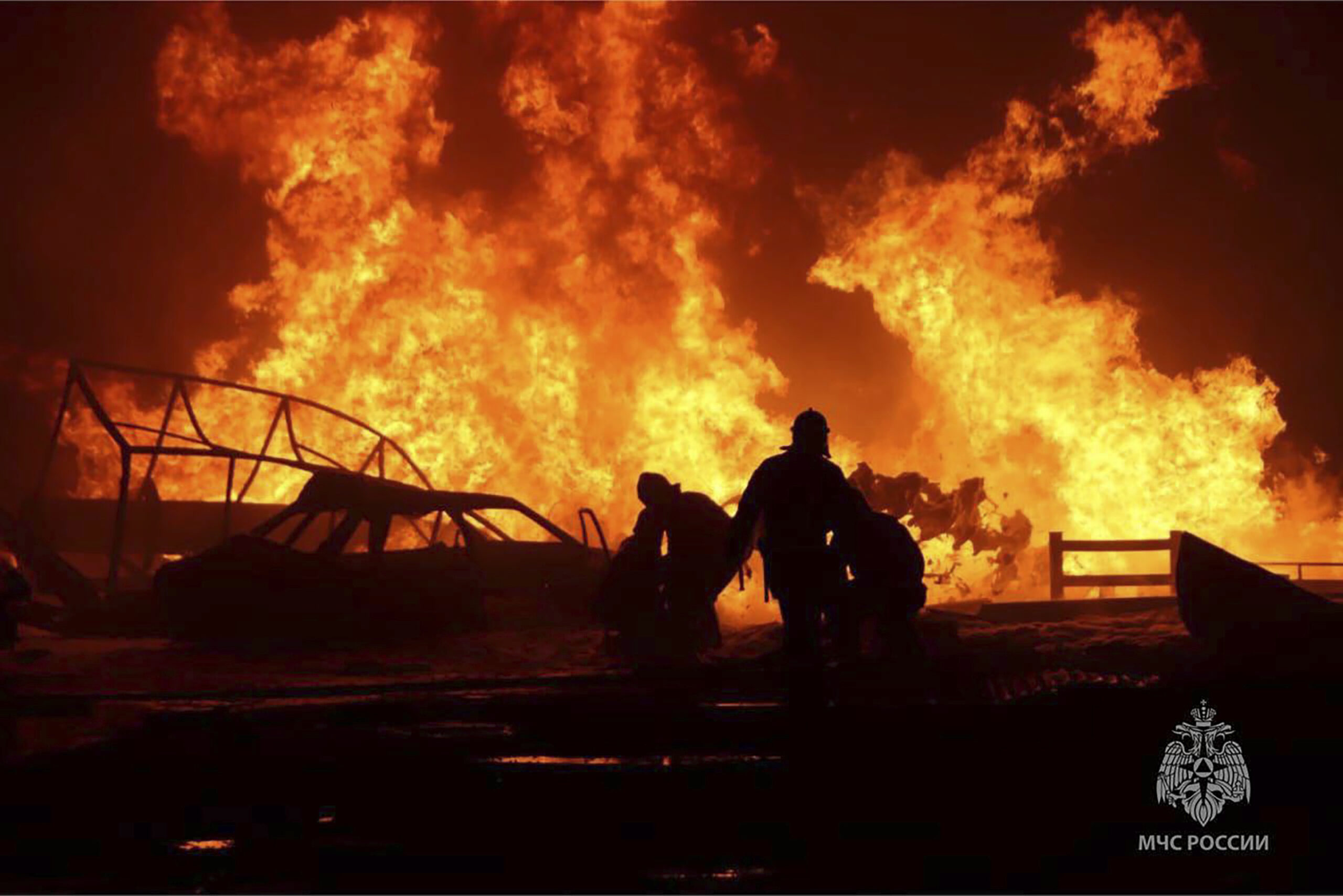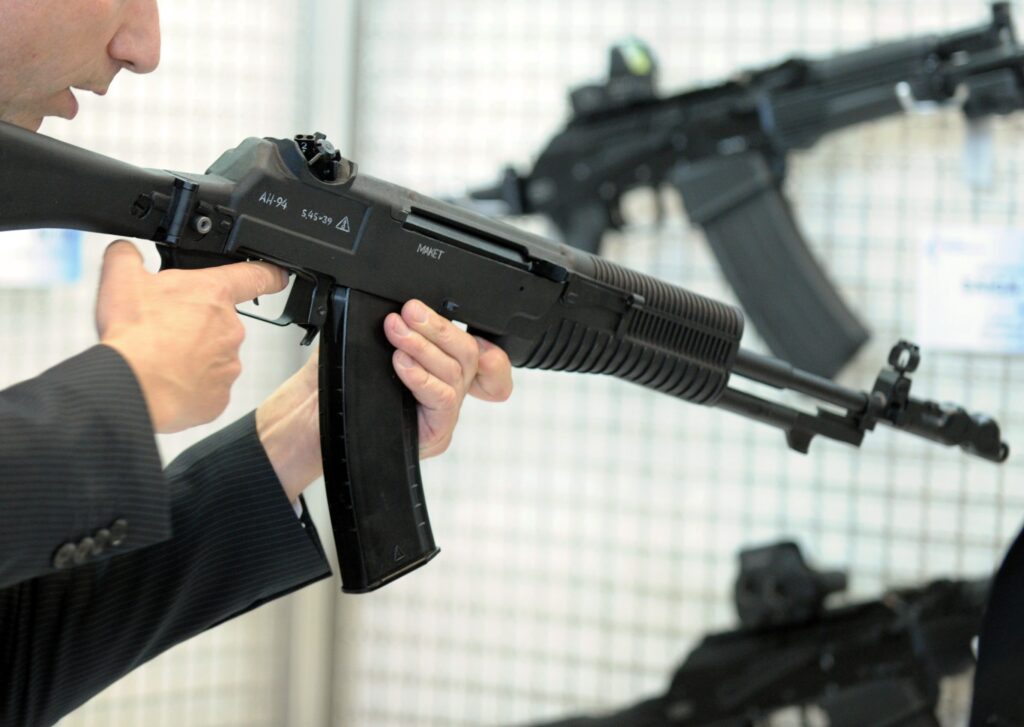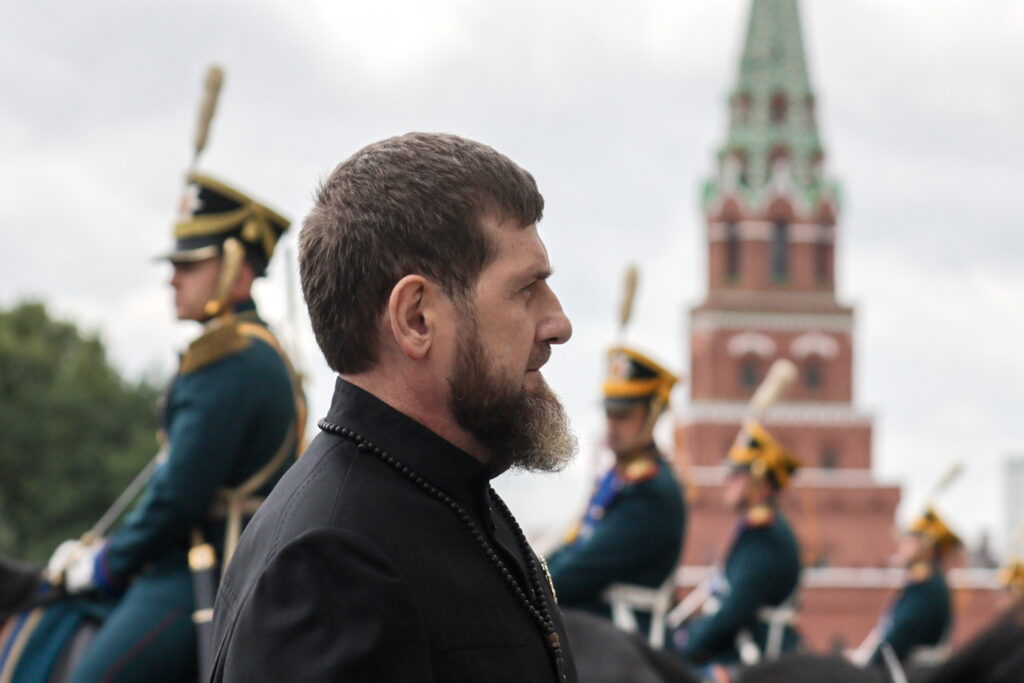August has already proved to be a turbulent month for Dagestan. Its first few weeks have been filled with protests, clashes, and tragedy. Most was easily foreseeable and preventable, had Governor Sergei Melikov addressed any of the problems faced by the republic’s residents during the past three years of his rule. Installed amid the pandemic, some in Moscow hoped he would be a bulwark of stability and regional leadership. Now, he faces a public uproar.
Attempting to promote stability
Melikov is an experienced politician, having repeatedly proved to the Kremlin that he can be entrusted to achieve objectives. Before his gubernatorial appointment, Melikov served as Presidential Envoy to the North Caucasus Federal District, Commander-in-Chief of Rosgvardia, and Senator for Stavropol. However, he is not completely a «Varangian”—how Andrey Pertsev refers to Kremlin-selected carpetbaggers—as Melikov is an ethnic Lezgin, one of the largest ethnic groups in Dagestan. Such demonstrated reliability is why he was entrusted with leading Dagestan. One of his main objectives has been to revive Dagestan’s economy, which, like the other North Caucasus republics, is consistently one of the worst in the country.
In 2021, Dagestan received the most funding from the federal center, other than Moscow City and Oblast’, moving ahead of Crimea. Tourism has been a particular focus for economic development, even more so since the pandemic forced Russians to vacation in their own country, discovering the potential of Dagestan. Melikov expected further growth in tourism in 2022, additionally considering tourism development as a way to counter the republic’s urban migration.
Further, the Dagestani government consistently promises to «ensure the sustainability of economic development.» That said, they have taken few steps to attain actual economic development, much less any sustainability of it. Instead, they have ignored basic infrastructural investments, crucial to everyday life, and certainly any hopes of increasing tourism and improving the economy. This failure is at the root of most of the republic’s ongoing problems.
Shutting down the streets
On August 7, DagEnergo reported that several neighborhoods in Makhachkala would be without electricity due to transformers overheating. Two days later, Makhachkala residents closed Magomet Gadzhiev Street in protest of the lack of electricity for three days. Rather than acknowledge the legitimate grievances of the protesters and attempt to deescalate with promises to build-up electricity infrastructure, Melikov called the protesters illegal. Protesters in the Karaman-2 microraion then shut down the Astrakhan-Makhachkala Federal highway on August 13 because of the lack of water or electricity for a week. Peter the First Avenue was closed by residents on August 15. The next day, locals blocked Gamidov Avenue.
Blocking streets is a common form of protest in Dagestan, due to the proximity of villages to important thoroughfares and the ease with which a village can spontaneously conduct protest. The police always respond quickly to these protests to clear logistical routes. In the case of the August 15 protest, however, the crackdown only moved the demonstration from the road to the sidewalk, differing from other instances.
Chronic insufficiencies
Generally, the problems facing Dagestan’s residents are well known and have existed for some time. The lack of basic necessities is a regular occurrence. Just since the beginning of the year—the problems started long before—access to electricity was limited. Protesters again blocked the highway in Karaman-2, which the authorities criticized. President Putin even condemned the problem, previously blamed on corruption by Dagestani authorities. This was before the outage reached its peak, when over fifty thousand residents without electricity. In the town of Buynaksk, one resident was arrested for calling for protests. By early February, roughly thirty thousand Dagestanis remained without electricity, with five regions still lacking at the beginning of March. Similar problems exist for water and natural gas supplies.
An August 14 gas station explosion, which the Investigative Committee attributed to fertilizers igniting, killed thirty-five people and injured over one hundred. Journalists and political scientists noted that fire safety issues at gas stations, and their proximity to residential areas, has been a problem for many years.
A road to the village of Bairamaul will finally be repaired for the first time in several years following a video appeal to Melikov. Earlier this year, villagers from Kusur and Karatyub also called for the construction of a road to the town, plus the modernization of electricity infrastructure.
All of the above are issues directly applicable to tourism development, plus any other industry. Fixing basic infrastructural problems should be the initial step taken by the authorities if they truly wished to «ensure the sustainability of economic development.» This is even more the case as mountain communities are a crucial part of Dagestan’s tourist development plan, yet, they are neglected even more than Makhachkala.
Rights and conflicts
Finally, Melikov is facing trouble over civic rights disputes. During an August 10 visit to Buynaksk, a group of activists were prevented from meeting with Melikov by being locked inside of the assembly hall. While the Dagestani governor condemned the unknown people responsible for the incident, he was mocked online for the hollowness of his address, as social media users highlighted the lack of action accompanying his words. A few days later, more than one hundred villagers of Kaka-Shura pled with President Putin to allow them to directly elect their municipal head. Their August 6 election was overturned in court because the independent candidate had been convicted for an unspecified «serious crime,» and should have been ineligible to stand in the election. The residents argued that that should not matter, as the independent supports Putin’s policies.
At the beginning of August, a conflict between Chechen and Dagestani youth began to spiral into a larger incident near the border village of Tukhchar. A nighttime gathering was defused by police, but the potential for violence in this district of Dagestan is always present. The Novolakskii raion has been home to clashes between Chechens and Avars as a result of disputes over the historically Chechen district, from which they were deported in 1944.
Further north, in Nogaiskii raion, almost one hundred youth started a brawl, allegedly because of a dispute over music. In a separate incident a few days later, three youths were arrested after an attempted extortion and robbery turned into a shootout. The youth population will become more vulnerable to engaging in illicit activities under poor socioeconomic conditions.
A new normal?
Melikov, or any government of Dagestan, are unable to directly assuage some of the factors exacerbating Dagestani’s problems, primarily climate change. The republic’s residents are already acutely feeling the effects of climate change in ways that threaten their livelihoods, such as desertification of the northern steppe region and the retreat of the Caspian Sea. Dagestan, like the rest of the North Caucasus, faces severe flooding with increasing frequency. These protests are a direct result of climate change, as the transformers overheated due to the combination of extreme temperatures and inadequate infrastructure. These climatic effects are only going to further deteriorate socioeconomic conditions, providing more reasons to protest.
While Dagestanis have not participated in recent national protest movements, the localization of grievances combined with a new wartime status quo has succeeded in bringing about public resistance. Dagestan attracted international attention last fall for its anti-mobilization protests—some of these cases are still being processed—after which the organizers have continued attempting to instigate more substantial opposition acts. These have included calls for more violent tactics.
Perhaps beating a dead horse, but abysmal socioeconomic conditions are a common factor in radicalization, and can be exacerbated by the security services’ heavy-handedness. In May, two young militants were killed during a religiously motivated attack on police. Importantly, Kavkaz.Realii reports that the North Caucasus is currently witnessing a regional increase in unregulated arms exports from the Russian army in Ukraine, although Dagestan has reported a decrease in arms trafficking. Experts predict, however, that this trend will reverse beginning next year. With accelerating factors for radicalization, resistance becoming more popular, and an increasing availability of weapons, Melikov will have to start solving problems immediately or face a growing backlash to his rule.










